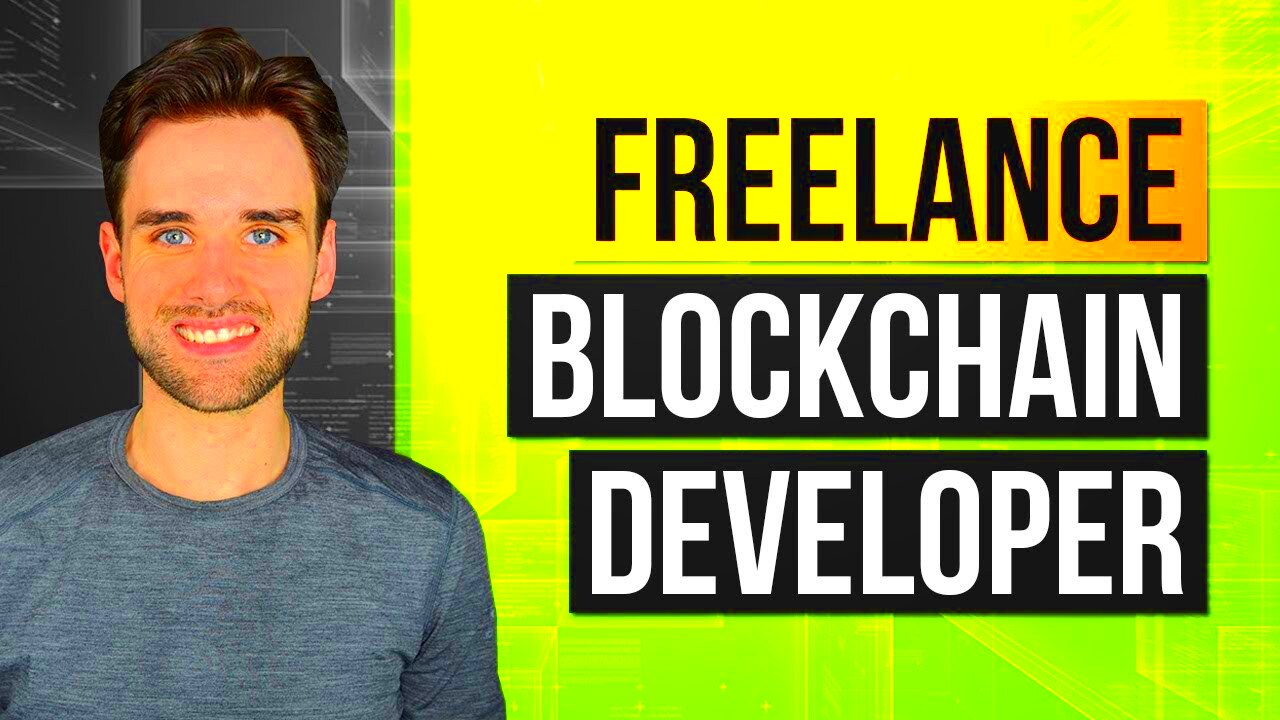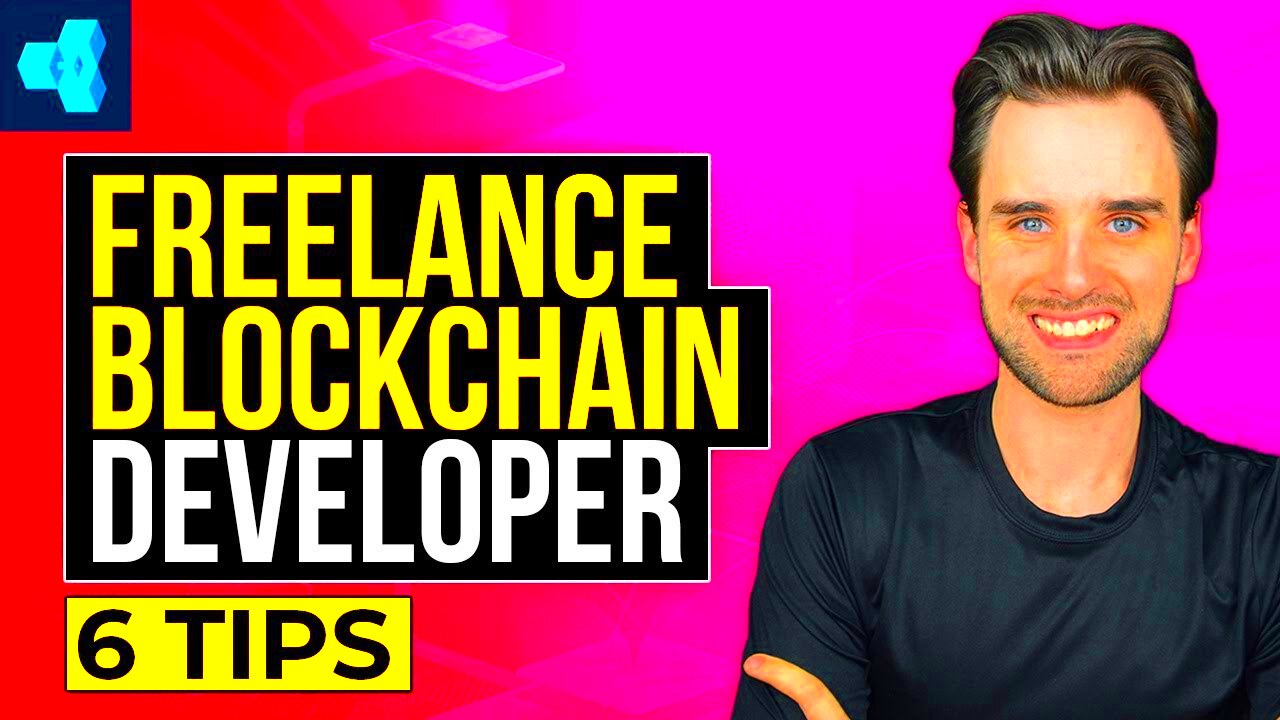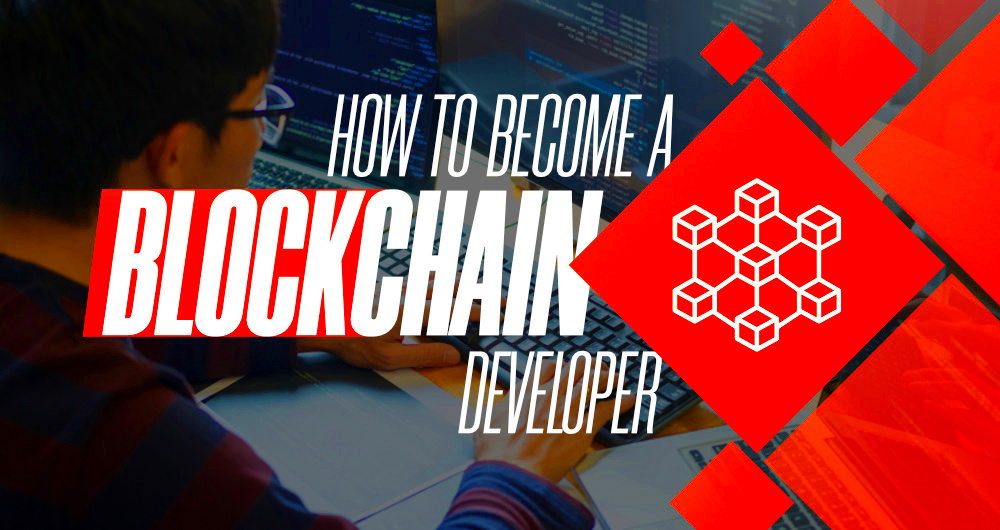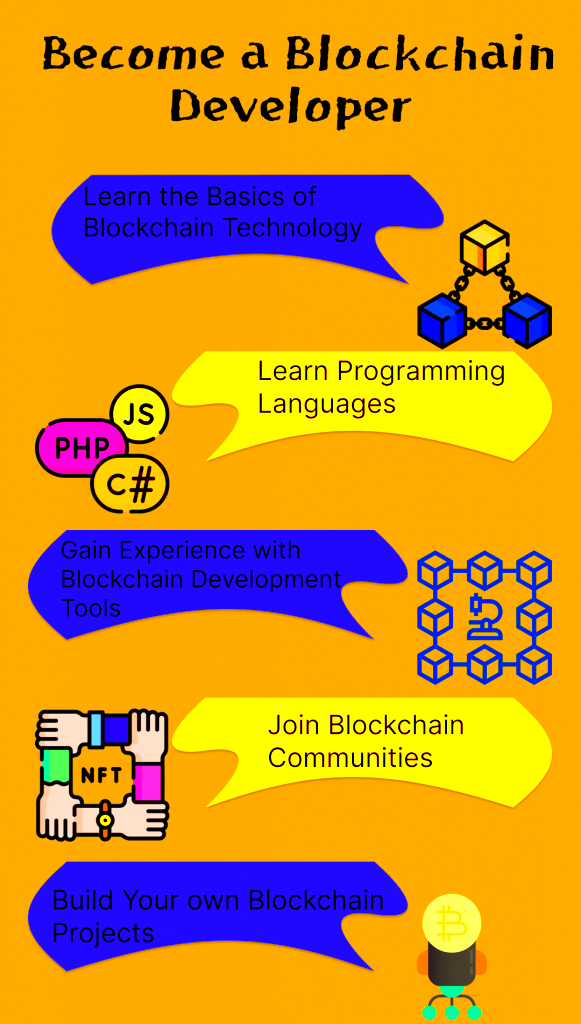Freelance blockchain development is an exciting and rewarding career path for those interested in both technology and independence. Blockchain developers build decentralized applications (dApps) and create secure systems using blockchain technology. As businesses and industries increasingly explore the potential of blockchain, skilled developers are in high demand. Freelancing allows you to work on a variety of projects, set your own rates, and work from anywhere, giving you flexibility and control over your career. If you're tech-savvy and enjoy problem-solving, this could be the perfect career for you.
Understanding the Role of a Blockchain Developer

Blockchain developers play a critical role in designing, implementing, and maintaining blockchain-based systems. Their primary responsibility is to ensure that the blockchain operates smoothly and securely. Here’s what the role generally involves:
- Creating and managing blockchain systems: Blockchain developers design protocols that allow data to be securely stored and transferred on the blockchain.
- Developing decentralized applications (dApps): Blockchain developers create decentralized apps that function on blockchain networks, providing secure, peer-to-peer interactions.
- Smart contract development: They develop and deploy self-executing contracts that automate tasks and agreements.
- Blockchain architecture: They design the structure of the blockchain and ensure it scales efficiently and securely.
In a freelance role, blockchain developers are responsible for managing all technical aspects of a project, from initial conception to deployment. This involves communication with clients to understand their needs, solving technical challenges, and ensuring that the final product meets requirements.
Also Read This: How to Add a Portfolio on Fiverr
Essential Skills Needed to Become a Blockchain Developer

To succeed as a blockchain developer, a specific set of technical and soft skills is essential. These skills help ensure that developers can create reliable, efficient, and secure blockchain applications. Here's a breakdown of the most important skills:
- Programming languages: Knowledge of languages like Solidity, JavaScript, Python, or Go is essential for creating blockchain applications.
- Understanding blockchain fundamentals: A deep understanding of blockchain principles such as decentralization, consensus mechanisms, cryptography, and smart contracts is crucial.
- Smart contract development: Blockchain developers must be proficient in writing and deploying smart contracts, often using Solidity for Ethereum-based projects.
- Cryptography: Blockchain relies heavily on cryptography to secure data. A solid understanding of encryption methods, hashing, and digital signatures is important.
- Familiarity with blockchain platforms: Being comfortable working with platforms like Ethereum, Bitcoin, Hyperledger, and others is necessary to implement blockchain-based solutions.
- Problem-solving skills: Blockchain development often presents complex challenges that require innovative solutions and debugging skills.
Besides technical expertise, soft skills like communication, time management, and the ability to work independently are crucial for freelance developers. Clients expect clear communication about project timelines, milestones, and any potential issues that arise.
Also Read This: How to Delete Your Fiverr Account
Steps to Start Your Career as a Freelance Blockchain Developer

Starting a career as a freelance blockchain developer may seem challenging at first, but with the right approach, you can quickly get up to speed and build a successful freelance career. Follow these steps to make a smooth entry into the blockchain development world:
- Learn the Basics of Blockchain Technology: Before you dive into freelance work, it's crucial to understand the core concepts behind blockchain technology. Read up on blockchain principles, how it works, and the different types of blockchains (public, private, hybrid). Platforms like Coursera, Udemy, and free resources like YouTube can help you get started.
- Master Programming Languages: As a blockchain developer, you need to be proficient in coding. Start with languages like Solidity (for Ethereum), JavaScript, and Python. Building a strong foundation in these languages will allow you to develop blockchain-based applications and smart contracts.
- Experiment with Blockchain Platforms: Learn how to build and deploy on popular blockchain platforms such as Ethereum, Binance Smart Chain, and Hyperledger. Each platform has its unique features and benefits, so understanding their differences is essential for offering diverse solutions to clients.
- Build Your First Blockchain Project: Hands-on experience is the best way to learn. Create your own simple blockchain project or contribute to open-source projects. This will help you gain practical skills and also showcase your abilities to potential clients.
- Register on Freelance Platforms: Once you feel comfortable with your skills, join platforms like Fiverr, Upwork, or Toptal to start finding clients. Having a profile on these platforms will help you connect with clients actively looking for blockchain developers.
By following these steps and being persistent in your learning, you’ll set yourself up for success as a freelance blockchain developer.
Also Read This: Understanding Delivery Time on Fiverr: What It Means for Buyers and Sellers
Building Your Blockchain Development Portfolio

Your portfolio is one of the most important tools in attracting clients and showcasing your skills as a blockchain developer. A well-built portfolio not only demonstrates your expertise but also serves as proof of the quality of work you can deliver. Here’s how to create a compelling blockchain development portfolio:
- Include a Variety of Projects: Show a range of blockchain applications you’ve worked on, from simple decentralized apps (dApps) to complex smart contract systems. The more diverse your portfolio, the more appealing it will be to clients with different needs.
- Showcase Real-World Applications: Clients want to see practical, real-world examples of your work. If you’ve worked on projects that solve actual business problems, highlight those. Explain the problem, how you solved it, and the impact your solution had.
- Provide Detailed Project Descriptions: For each project in your portfolio, include a detailed description. Outline the challenges you faced, how you approached them, the technologies used, and the outcome. If possible, provide links to the project or GitHub repositories where clients can see your code.
- Highlight Your Role in Collaborative Projects: If you’ve worked in teams, emphasize your contributions. This shows potential clients that you can collaborate and work effectively in team settings, which is a valuable skill in freelance work.
- Use Testimonials: If you have worked with clients, ask for testimonials to add to your portfolio. Positive feedback can help build trust and credibility with new clients.
As you continue working on projects and building your portfolio, remember to keep it updated with new projects and improvements. A strong portfolio is key to attracting high-quality clients and standing out in a competitive market.
Also Read This: What Does Fiverr Do With Your ID?
How to Find Clients and Projects as a Blockchain Developer
Finding clients and projects as a blockchain developer may take time, but with persistence and a strategic approach, you'll soon build a steady stream of work. Here are some proven methods to help you find clients and projects:
- Join Freelance Marketplaces: Platforms like Fiverr, Upwork, Freelancer, and Toptal connect freelance blockchain developers with clients. Create a professional profile, list your skills, and apply for projects that match your expertise.
- Network on Social Media: LinkedIn and Twitter are great platforms for connecting with potential clients. Join blockchain development groups, participate in discussions, and share your work to increase your visibility.
- Attend Blockchain Events and Meetups: Participate in blockchain conferences, meetups, and webinars. These events allow you to meet other professionals, learn about trends, and find potential clients who may need blockchain development services.
- Contribute to Open-Source Projects: Contributing to open-source blockchain projects on platforms like GitHub is an excellent way to demonstrate your skills. It can lead to job opportunities, networking connections, and even clients who need custom solutions.
- Cold Outreach: If there are businesses that could benefit from blockchain technology, don't hesitate to reach out to them directly. Craft personalized emails to explain how you can help them integrate blockchain solutions into their operations.
- Build an Online Presence: Create a website or blog to showcase your portfolio and share valuable insights about blockchain development. An online presence helps potential clients find you and learn more about your skills.
By using a combination of these methods, you can increase your chances of finding clients who are looking for blockchain development services. Remember, persistence and professionalism are key to landing consistent work in the freelance blockchain space.
Also Read This: How to Make a Gig on Fiverr
Common Challenges Freelance Blockchain Developers Face
Being a freelance blockchain developer offers many benefits, but it's not without its challenges. Here are some common hurdles you might face in this career:
- Staying Updated with Rapid Technological Changes: Blockchain technology evolves quickly. New platforms, frameworks, and tools are introduced regularly. As a freelance developer, it's crucial to stay updated to remain competitive in the market. Continuous learning and attending industry events or webinars can help you stay on top of trends.
- Dealing with Complex Client Requirements: Blockchain development projects can be complex, especially when clients have vague or unrealistic expectations. You may need to invest time in educating clients about blockchain’s limitations and potential. Clear communication and setting realistic expectations at the beginning of a project can help mitigate this.
- Managing Multiple Projects: Freelancing means juggling multiple clients and projects at once. Balancing deadlines and maintaining quality across projects can be challenging, especially if you lack solid time management skills. Using project management tools like Trello or Asana can help keep you organized.
- Finding Reliable Clients: One of the biggest challenges of freelancing is finding clients who are trustworthy and willing to pay for your services on time. Sometimes, clients may not be clear on what they need or may not pay as agreed. To minimize this, always have clear contracts in place and ask for upfront payments or deposits when possible.
- Building a Reputation: As a freelancer, building a reputation takes time. You may face slow periods before landing consistent work. It’s important to work on developing a strong portfolio, gather testimonials, and build relationships that lead to repeat clients.
While these challenges can be daunting, they are also part of the journey. With persistence and a focus on improving your skills, you can overcome these obstacles and thrive as a freelance blockchain developer.
Also Read This: How Much Freelance Video Editors Charge and Make
FAQs about Becoming a Freelance Blockchain Developer
Here are some frequently asked questions that can help clear up any doubts if you’re considering a career as a freelance blockchain developer:
- Do I need a degree to become a blockchain developer? No, many blockchain developers are self-taught or have learned through online courses. What matters most is your practical skills and experience with blockchain technologies.
- How long does it take to become proficient in blockchain development? It depends on your previous programming experience, but generally, it can take anywhere from a few months to a year to become proficient in blockchain development. Continuous learning is key to staying up-to-date.
- What are the best platforms for freelance blockchain developers? Popular freelance platforms include Fiverr, Upwork, Freelancer, and Toptal. These platforms provide access to clients looking for blockchain services. You can also consider niche platforms like Braintrust and Gun.io.
- How much can a freelance blockchain developer earn? Freelance blockchain developers can earn a wide range of rates depending on their experience, skills, and the complexity of the project. Beginners may charge $20-$50 per hour, while experienced developers may charge $100 or more per hour.
- Do I need to specialize in a particular blockchain platform? While general blockchain knowledge is useful, specializing in a platform like Ethereum, Solana, or Hyperledger can make you more attractive to certain clients looking for expertise in that area.
- What tools do freelance blockchain developers use? Common tools include programming languages (Solidity, Python, JavaScript), blockchain frameworks (Truffle, Hardhat), version control (GitHub), and project management tools (Trello, Asana).
By understanding these frequently asked questions, you can better prepare for the realities of freelance blockchain development and set yourself up for success.
Conclusion and Final Tips for Success
Becoming a successful freelance blockchain developer is a journey that requires dedication, constant learning, and the ability to overcome challenges. Here are some final tips to help you succeed:
- Keep Learning: Blockchain is a rapidly evolving field. Make sure to continually improve your skills through courses, reading, and experimenting with new technologies. This will keep you competitive and in demand.
- Build a Strong Network: Networking is crucial in the freelance world. Attend industry events, engage on social media, and connect with other developers and potential clients to grow your opportunities.
- Set Clear Boundaries: As a freelancer, it's easy to overcommit. Be clear about your availability, working hours, and the scope of your work to avoid burnout and miscommunication with clients.
- Offer Exceptional Customer Service: Happy clients lead to repeat business and referrals. Communicate well, meet deadlines, and be proactive about addressing any issues that come up during the project.
- Stay Organized: Use project management tools and time trackers to manage your workload efficiently. Staying organized will ensure that you meet deadlines and keep clients satisfied.
With the right approach, dedication, and persistence, you can build a successful career as a freelance blockchain developer. Keep pushing forward, and you'll find plenty of opportunities to grow in this exciting field.




